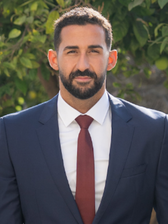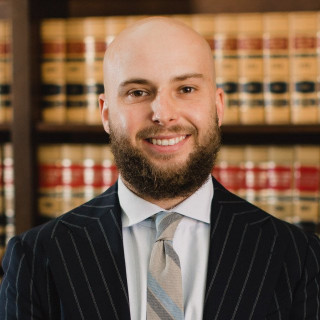Filter by

What a Juvenile Law Lawyer Can Do for You
A juvenile law lawyer specializes in legal issues involving minors, including those facing criminal charges, child welfare matters, or status offenses (like truancy or curfew violations). Juvenile law lawyers aim to protect the rights of minors and advocate for rehabilitation rather than punishment in criminal cases. They also help families navigate child custody, abuse, neglect cases, and other legal matters involving children.
If your child is facing criminal charges, or you are involved in a child welfare case, a juvenile law lawyer can help protect your child’s rights and work toward the most favorable outcome.
When Should I Hire a Juvenile Law Lawyer?
You should consider hiring a juvenile law lawyer in the following situations where minors are involved in legal matters:
- Juvenile criminal charges: If your child is accused of a crime, such as theft, assault, or drug offenses, a juvenile lawyer can represent them in juvenile court, advocating for leniency and alternatives to detention.
- Delinquency proceedings: A lawyer can help navigate delinquency charges, defending your child’s rights and seeking rehabilitative outcomes like counseling, probation, or diversion programs instead of incarceration.
- Status offenses: If your child has committed a status offense, such as truancy, running away, or underage drinking, a lawyer can help you resolve these issues in juvenile court, often focusing on rehabilitation rather than punishment.
- School disciplinary issues: If your child is facing school suspensions, expulsions, or other disciplinary actions, a lawyer can help protect their educational rights and challenge any unfair or unlawful school policies.
- Child protective services (CPS) investigations: If your family is being investigated by CPS for alleged abuse, neglect, or dependency, a lawyer can represent you and protect your child’s rights throughout the investigation.
- Custody disputes: A lawyer can help in cases involving child custody or guardianship disputes, ensuring the child’s best interests are prioritized and advocating for the child’s rights.
- Emancipation: If your child seeks legal emancipation from their parents or guardians, a lawyer can assist in navigating the legal process and help the child understand their rights and responsibilities.
Hiring a lawyer early in the legal process ensures that your child’s rights are protected and that the best possible outcomes are pursued.
What Does a Juvenile Law Lawyer Do?
A juvenile law lawyer provides various services to help minors and their families navigate the legal system. Their responsibilities often include:
- Representing minors in court: A lawyer will represent your child in juvenile court, advocating for their rights and seeking rehabilitative outcomes rather than punitive measures.
- Filing motions and legal paperwork: The lawyer handles all necessary legal filings, including petitions, responses, and motions to dismiss charges or suppress evidence.
- Negotiating with prosecutors: In some cases, a lawyer can negotiate plea deals or diversion programs that prevent the child from having a permanent criminal record or serving time in detention.
- Advising on rehabilitation programs: Juvenile law lawyers often focus on alternatives to incarceration, such as counseling, community service, or probation, helping minors avoid long-term legal consequences.
- Handling CPS and child welfare cases: If your family is involved in a CPS investigation or child welfare case, the lawyer can advocate for your child’s safety and well-being, ensuring that their rights are upheld.
- Defending minors against school discipline: A lawyer can help challenge unfair or excessive disciplinary actions taken by schools, ensuring that your child’s educational rights are protected.
- Advising families on legal options: A lawyer will explain the juvenile legal process to families, offering advice on the best legal strategies and what to expect during the case.
How Are Juvenile Law Lawyers Paid?
Juvenile law lawyers typically charge for their services based on the complexity of the case and the time involved. Common payment structures include:
- Hourly rate: Many juvenile law lawyers charge by the hour, with rates ranging from $150 to $500 or more, depending on the lawyer’s experience and location.
- Flat fee: For simpler cases, such as status offenses or school disciplinary hearings, a lawyer may charge a flat fee that covers all legal services related to the case.
- Retainer: In more complex cases, such as defending against serious criminal charges or handling a long-term CPS investigation, a lawyer may require a retainer, which is an upfront payment billed against as they work on the case.
- Sliding scale or pro bono services: Some juvenile law lawyers offer sliding scale fees based on income or may provide pro bono (free) services for families who cannot afford to pay full legal fees, especially in cases involving child welfare or delinquency.
Discuss the lawyer’s fee structure during your consultation to understand the total cost and payment options.
How Much Does a Juvenile Law Lawyer Cost?
The cost of hiring a juvenile law lawyer depends on the complexity of the case, the lawyer’s experience, and the time involved. General cost estimates include:
- Juvenile criminal cases: Legal fees for defending a minor in juvenile criminal cases can range from $2,000 to $10,000 or more, depending on the severity of the charges and whether the case goes to trial.
- Status offenses: For cases involving minor offenses such as truancy or underage drinking, legal fees typically range from $1,500 to $5,000.
- CPS or child welfare cases: Legal fees for representing families in CPS investigations or child welfare cases can range from $2,000 to $8,000 or more, depending on the complexity of the case.
- School disciplinary hearings: Legal fees for representing students in school-related issues may range from $1,000 to $3,500, depending on the legal work required.
Make sure to get a clear estimate of costs during your initial consultation to ensure you understand the full scope of fees and services.
Top Questions to Ask a Juvenile Law Lawyer
Before hiring a juvenile law lawyer, it’s important to ask key questions to ensure they have the experience and expertise to handle your child’s case effectively. Key questions to ask include:
-
What experience do you have with juvenile law cases?
Make sure the lawyer has handled cases similar to yours, whether it’s juvenile delinquency, child custody, or CPS investigations. -
How do you charge for your services?
Clarify whether the lawyer charges by the hour, offers flat fees, or requires a retainer. Ask for a detailed estimate of the total cost. -
What is the likelihood of success in my child’s case?
Ask the lawyer for an honest assessment of the case, including potential challenges and likely outcomes. -
How long will the process take?
Juvenile cases can vary in duration, so ask the lawyer how long they expect the process to last and what factors might affect the timeline. -
Will you personally handle my child’s case?
In larger firms, junior attorneys or paralegals may handle parts of the case. Make sure you know who will be managing the case and representing your child in court. -
What rights does my child have?
Ask the lawyer to explain your child’s legal rights, including their rights during police questioning, school disciplinary actions, and court proceedings.
How to Check the Credibility of a Juvenile Law Lawyer
To ensure you are hiring a reputable juvenile law lawyer, take the following steps to verify their credentials and experience:
- Verify their bar status: Check with your state bar association to confirm that the lawyer is licensed to practice law and has no history of disciplinary actions.
- Look for juvenile law experience: Review the lawyer’s website or professional profile to ensure they specialize in juvenile law and have successfully handled cases similar to yours.
- Read client reviews and testimonials: Look for client reviews on platforms like Avvo, Martindale-Hubbell, or Google to see what previous clients have said about the lawyer’s professionalism and success rate in juvenile cases.
- Ask for references: A reputable lawyer should be able to provide references from past clients who have worked with them on juvenile law matters.
- Check for certifications or memberships: Look for memberships in organizations like the National Juvenile Defender Center (NJDC) or certifications in juvenile law, which can indicate a lawyer’s dedication to representing minors.
What Should I Prepare for My First Consultation?
To get the most out of your first consultation with a juvenile law lawyer, it’s important to come prepared with relevant documents and information. Here’s what you should bring:
- Court documents: Bring any legal documents related to your child’s case, such as summons, complaints, or court orders.
- School records: Provide any relevant school records, including disciplinary reports, attendance records, and communications from school officials.
- CPS or investigation reports: If your case involves child welfare, bring any reports or documentation from CPS or other investigating agencies.
- Timeline of events: Prepare a detailed timeline of events related to your child’s legal issue, including interactions with authorities or school officials.
- Questions for the lawyer: Write down any questions about the legal process, your child’s rights, and potential outcomes for the case.
Being well-prepared will help the lawyer assess your child’s situation more effectively and provide the best possible legal advice tailored to your needs.










